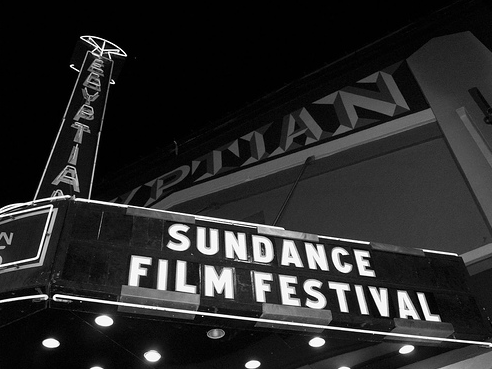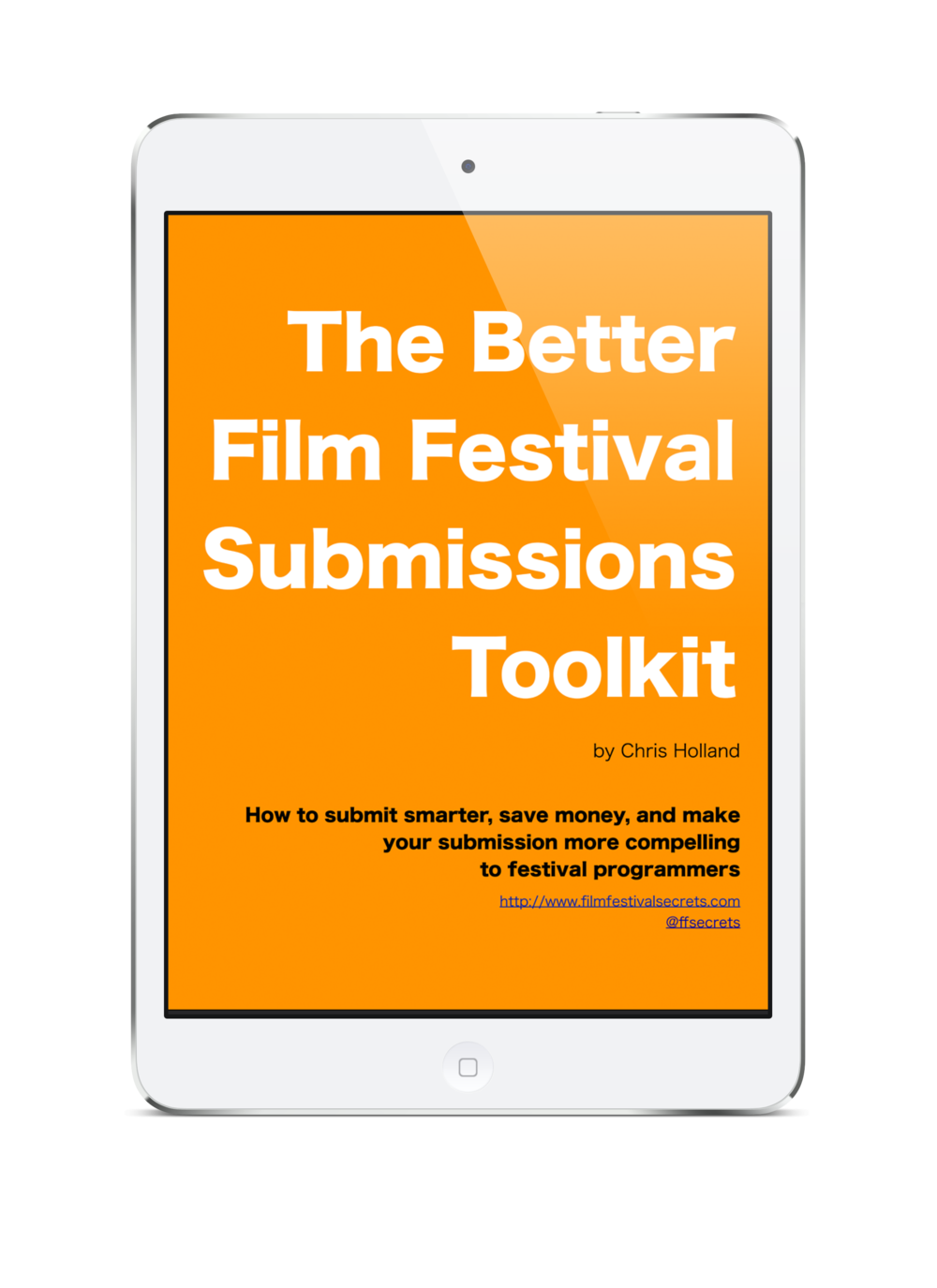In part one we covered some travel and film promotion basics.
Part two highlighted the importance of a web site for your film.
Part three discussed some general organizational and travel tips that will make your trip easier so you can think about promoting yourself and your movie.
In part three I mentioned that filmmakers who want to work in the industry for a living should think of a film festival as a career fair, and it is: your peers and potential employers are there, looking to connect with one another. The difference is that it all takes place in a much less organized environment, where screenings and parties and general chaos provide a reason for gathering but occasionally get in the way of conducting business. The challenge lies in connecting to the right people and having the right conversations in the midst of all this, and if you don't prepare then you're relying almost entirely on chance to make this happen. Not that great conversations don't happen by chance, but you don't want that to be your entire plan.
So while you're on the ground at the film festival, do the following:
» Set discrete, measurable, attainable goals. Of course you should think about what your overall goals are for your film and your career, but for the purposes of any one event you need to write down the bite-sized goals that you can accomplish while you're there. "Find a distributor" is not a bite-sized goal. "Talk to ten distributors and establish contact with an acquisition rep at each" is more reasonable.
Put these goals in the front of your notebook (you did buy a notebook, right?) and refer back to them each day so you can stay focused. Check each one off as you finish it for that warm, fuzzy feeling of accomplishment.
» Do groundwork before you arrive so you don't waste time just getting up to speed. That means reaching out to the press and setting up interviews beforehand as discussed in part 3. If there is an attached exhibition floor, check out the trade show floor map and write down a list of the companies with whom you want to talk. You don't have to have every minute of every day mapped out, but you don't want to spend time at the festival making phone calls or writing emails when you could be enjoying the festival or talking to journalists and other filmmakers.
» Take advantage of panels and screenings. Keep a detailed calendar so you always have options if you're not actively promoting your film. At a large festival, the first half of the event is usually the busiest, so you should stick close to the center of the action to squeeze in as many interviews and marketing activities as possible. When you're not doing those things, check out the screenings and panels (if any). Even the occasional clunker of a panel will have some interesting people at the front of the room, so stick around afterwards and introduce yourself. With journalists and industry types alike, the phrase "I have a film in the festival this year" is the perfect icebreaker: it identifies you as someone with talent and of potential interest. Use it to your advantage.
The same goes for screenings; after the Q&A, approach the filmmakers and introduce yourself. Be sure to say something nice about the film and ask about their experiences at the festival so far. Chances are good that other filmmakers have met journalists who haven't found you yet, or have learned lessons about the festival experience that could benefit you. You want that knowledge. Be polite about this, and always present it as an exchange of information rather than an information dump. When you find someone who seems particularly well-informed, offer to buy the next round. The collected wisdom of the other filmmakers at a festival is well worth the price of a few drinks.
» Talk to the press. When Kissing on the Mouth played SxSW in 2005, Joe Swanberg wrote a travelogue with a nice set of tips for filmmakers about the festival. You should read it in its entirety, but I like this passage:
It's not a bad idea to spend a few afternoons hanging around the Filmmaker Lounge, which is conveniently located very near the Press Lounge. Stay visible, and spend some time walking between the two places, seeing who you can bump into. Sometimes press will be conducting interviews with other filmmakers in the Press Lounge, and you can piggyback and do an interview after they are finished. We got some good coverage just from being in the right place at the right time, but the right place was almost always somewhere near the Press Lounge.
The press have a job to do: present the most interesting news to their audience before their competitors do. In order to make sure you get good coverage, you need to make their job as easy as possible. That's where your web site comes in, and, if you're particularly prepared, an electronic press kit (EPK). An EPK is just a self-contained package with the basic facts about your film (press releases, cast lists, one-sheet, etc) and some supporting media -- high-resolution stills, trailers in Quicktime format, etc. A good EPK should let a journalist get a good sense of your film in a few minutes just by popping it into her laptop. These used to come on CD-ROM; nowadays I see them on cheap thumb drives or emailed as ZIP files.
One last word on the press: do not be intimidated. They are there to cover the festival, and you're part of the festival. So if you present yourself politely and provide compelling reasons that your film should be part of their festival coverage, the average member of the press will give you serious consideration. That's not to say that the media doesn't house its share of schmucks, or that anyone owes you coverage, but you have a right to conduct business the same as anyone else. Have your screeners and your flyers ready, and go get 'em.
» Stay tuned to the festival news. Subscribe to the newsletters, check out the official festival blog, and read some of the third-party coverage of the festival as a whole. You want to get a sense of where the action is and what events are likely to draw crowds. Most especially you want to be aware of last-minute schedule changes and additions -- things can change in the middle of a festival and you can't make intelligent choices about how to spend your time if you aren't in the know.
» Go to the parties. There are some of you out there who need to be told to do this. When it comes to film festivals, parties are where a lot of business relationships begin. You don't need to stay to the bitter end of every party, nor do you need to go everywhere you're invited, but get out and engage in the art of the schmooze. If your schmoozing skills are rusty, ask for advice from the schmooziest person you know. Be sure to pass out those flyers when the opportunity presents itself. Don't forget to ask for business cards from the interesting people you meet, and try to take it easy on the open bar.
» Take good notes. I mentioned this in passing back in part 3, but it bears repeating here. You don't need to scribble out every word you hear verbatim, but you should get in the habit of jotting down a note or two after each conversation you have. Make sure you take note of the person's name (even if you got their business card) and what the main points of the conversation were. Don't rely on your memory; it will fail you when you most need it. This is particularly important when it comes to encounters with the press -- a few weeks after the festival you'll want to go back over the contacts you made and see which of them actually wrote something about you. Someone who particularly enjoyed your film may be a good contact for other festivals or later works.
Notes are also important for remembering promises you made. If you owe someone a screener or a callback, you don't want to forget. Make a special symbol in your notes for to-do items -- a check box, an asterisk, whatever works for you -- so you'll recognize uncompleted tasks when scanning over your back notes.
» Keep in mind the overall goal of building your career and reputation, not just selling the film at hand. Too many filmmakers blunder onto the festival circuit with unrealistic hopes of a big paycheck and a distribution deal waiting for them right after their premieres. (I call it Weinstein Syndrome.) Watch the Q&As at the screenings you go to and you're bound to see it -- the cast and crew in attendance with eyes just a little too wide and smiles just a little too big. A serious examination of the state of independent film distribution today reveals that very few films get sold at film festivals, and independent pictures in general have a hard road ahead of them when seeking an audience. The good news is that film festivals are the front lines of indie film, and careers really do get built between panels and parties. Opportunity is there, but you have to know where to look and grab it when it shows its face.
» Have fun! I'm sure this all sounds like the least fun you could possibly have at a film festival, but try to balance your business activities with some play. There's no reason you can't do both at the same time. You just need to retain some awareness of you're doing and saying and what it might do for your future as a filmmaker.
This is part four of a revised series of articles originally written for South by Southwest 2008. The revisions add new and updated information and make the series more applicable to other festivals.
Next: 6 essential things to do after a film festival.
 indieWIRE announced last week that it will be maintaining a guide to film festivals on its site. Presumably this will be a more formal effort to present information on particular festivals than its usual practice of simply covering festivals as they occur. Not that the coverage in and of itself was a bad thing, but it could be difficult to get a sense of indieWIRE's overall view of the festival world.
indieWIRE announced last week that it will be maintaining a guide to film festivals on its site. Presumably this will be a more formal effort to present information on particular festivals than its usual practice of simply covering festivals as they occur. Not that the coverage in and of itself was a bad thing, but it could be difficult to get a sense of indieWIRE's overall view of the festival world.
 Boston.com (the online arm of the Boston Globe) presents us with the tale of two film festivals who just couldn't get along. The festivals in question are the Independent Film Festival Boston (by far the largest and most well-regarded fest in town) and the Boston International Film Festival, which changed the dates of its festival this year now overlaps its more successful cousin by a few days.
Boston.com (the online arm of the Boston Globe) presents us with the tale of two film festivals who just couldn't get along. The festivals in question are the Independent Film Festival Boston (by far the largest and most well-regarded fest in town) and the Boston International Film Festival, which changed the dates of its festival this year now overlaps its more successful cousin by a few days. The LA Times examines the
The LA Times examines the  I don't normally just rehash a press release, but I'm really happy about the fact that 45365 won the doc competition. It was in one of my stacks of screeners this year and while I can't say I championed it to the programmers or anything silly like that, it's really nice to see a film that you believe in early on become the competition winner.
I don't normally just rehash a press release, but I'm really happy about the fact that 45365 won the doc competition. It was in one of my stacks of screeners this year and while I can't say I championed it to the programmers or anything silly like that, it's really nice to see a film that you believe in early on become the competition winner.
 Things have been a bit quiet around here lately because it's been all hands on deck for the launch of
Things have been a bit quiet around here lately because it's been all hands on deck for the launch of  There were a number of interesting announcements at Sundance this year, though few of them had to do with big-ticket film acquisitions. (This comes to the surprise of no one.)
There were a number of interesting announcements at Sundance this year, though few of them had to do with big-ticket film acquisitions. (This comes to the surprise of no one.) If you're one of the lucky few, uh– thousands headed to
If you're one of the lucky few, uh– thousands headed to  Big Sky Documentary Film Festival Announces 2009 Award Winners
Big Sky Documentary Film Festival Announces 2009 Award Winners

